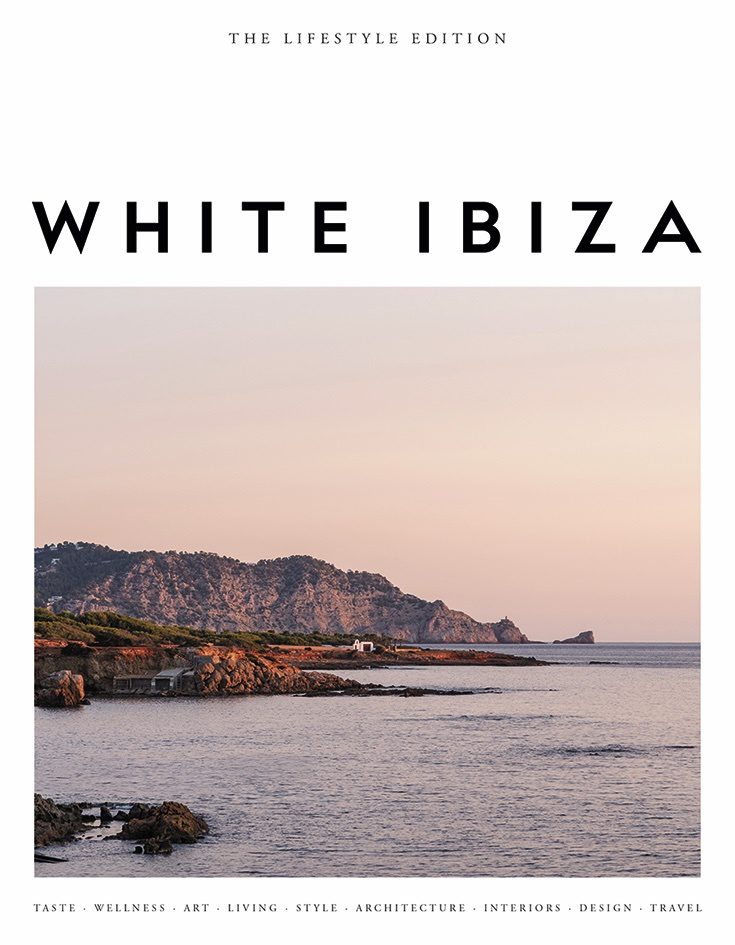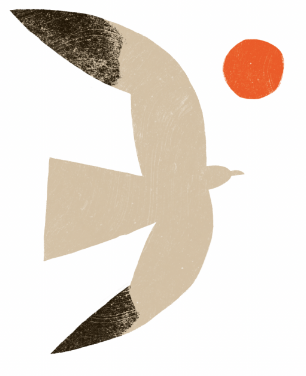Love is an ecosystem – ,More’ by Cas Gasi
Brought to life by Margaret von Korff, ,More’ by Cas Gasi is an ode to Ibiza where organic produce grown using regenerative farming processes results in a delectable menu like no other.
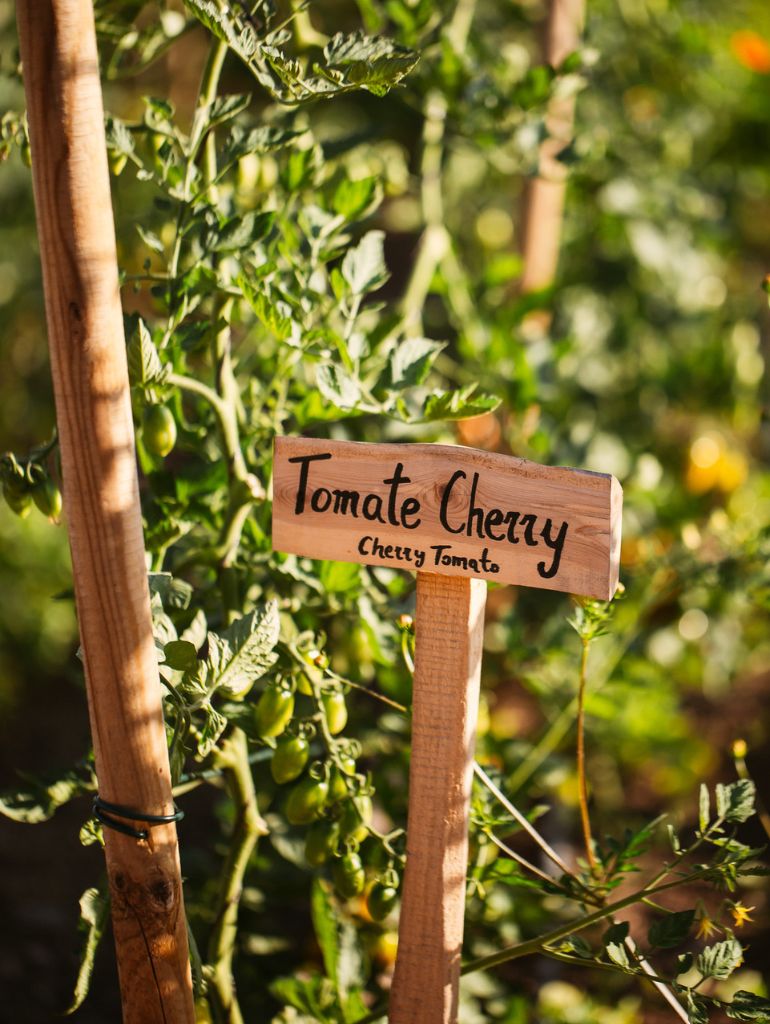

Margaret von Korff was 16 years old the first time she came to Ibiza. A teenager infused with the verve of youth, she was energised by the island’s intensity the second her feet first touched Ibizan soil, so when the opportunity arose to revisit the island with friends a couple of years later, she couldn’t resist. “I lived the kind of life where I didn’t care what happened next,” explains the founder and creative mind behind Cas Gasi. “We all wanted to be free, and Ibiza was a wonderful mix of good feelings and people wanting to find out about this brave new world.”
That trip was characterised by wild, barefoot adventures, sun-kissed faces and salty hair, and it became the blueprint for how Ibiza formed in Margaret’s memory as an island where liberty was embraced. Decades later she returned with her own family in tow, moving into Cas Gasi, a rustic finca among the pine-scented hills surrounding Santa Gertrudis,where her life took shape. Now serving as a luxurious boutique hotel, Margaret has spent the past two decades moulding Cas Gasi in her typically enlightened vision, throwing out rules if they don’t make sense and living according to a distinctly individual beat.

The latest iteration of that mindset is ,More’ by Cas Gasi, the boutique hotel’s enchanting in-house, fine dining restaurant. During the day this beautiful setting is the Garden Café, serving lunches and snacks in a more casual ambience. When dusk falls across the bountiful gardens and fragrant fruit trees it becomes ,More’ by Cas Gasi, a serene sanctuary that conjures impressions of Ibiza’s glory days, when life was simpler and a more symbiotic relationship between human and land existed. Margaret named it after Barbet Schroeder’s 1969 movie, More, which depicted Ibiza as a hazy blank canvas for free thought and movement, elements she recognised from her own adolescence.
“When I saw the film there was something prevalent about it,” she says. “It was a concoction of curiosity, creativity and beauty coming together to find real meaning in life. And when I was thinking about a name for the restaurant, ‘more’ just stuck with me.” There are additional layers to the context of naming ,More’ by Cas Gasi: “For me, the word refers to more of the good things,” she adds. “It’s about more sustainability and gratitude; more of everything positive and natural and honest.”
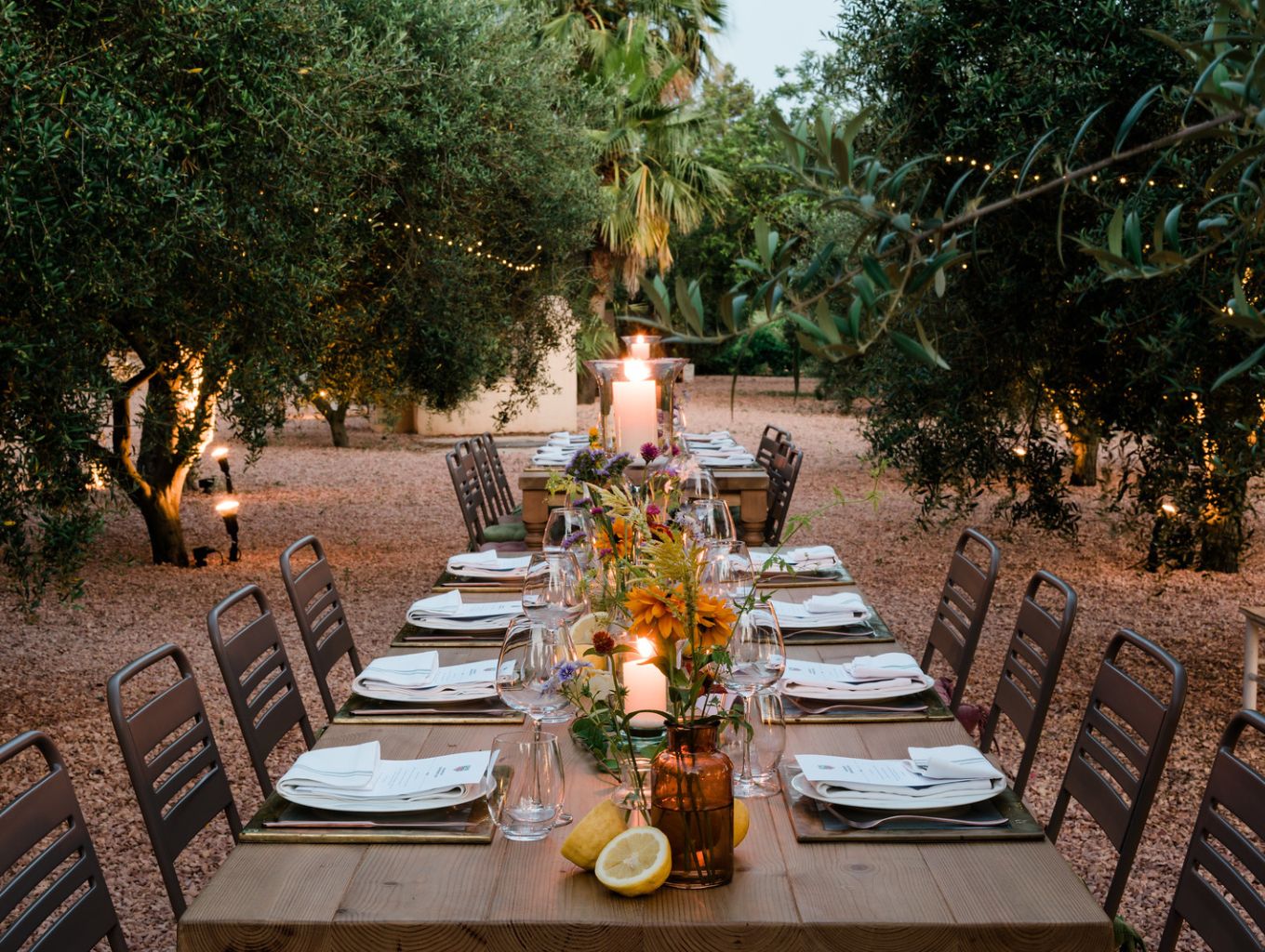
In truth, Margaret has been championing these causes for decades. But the notion has been taken one step further with the inception of ,More’ by Cas Gasi, which is serviced by the hotel’s expanded Silent Garden, a regenerative agricultural project inspired by Charles Dowding’s no-dig system, which dispenses with machinery and replaces it with artisanal methods that respect nature’s natural rhythms. Still productive, but more peaceful in the process, produce is cared for and plied with love, and it shows on the plate.
“The vegetables that we grow for ,More’ by Cas Gasi have become the principal actor,” Margaret says. “And I’m so happy because it’s a mix of organic and slow food, so whatever we use, we produce it right from the beginning.” It’s an intimacy with the earth that diners feel palpably. Seated on the terrace or at long, wooden tables beneath olive trees or under the pergola entwined with vine leaves — right in the heart of the vegetable garden — guests are served dishes crafted using produce that just hours before had been plucked from the ground. It’s the very embodiment of the KM0 ethos.
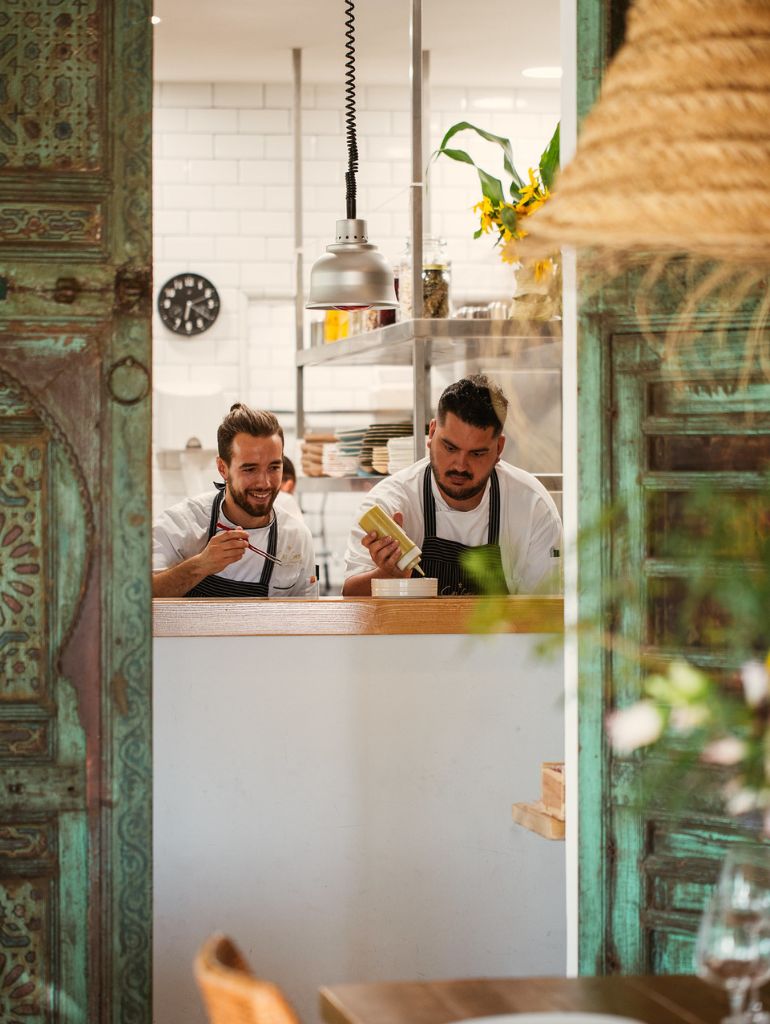
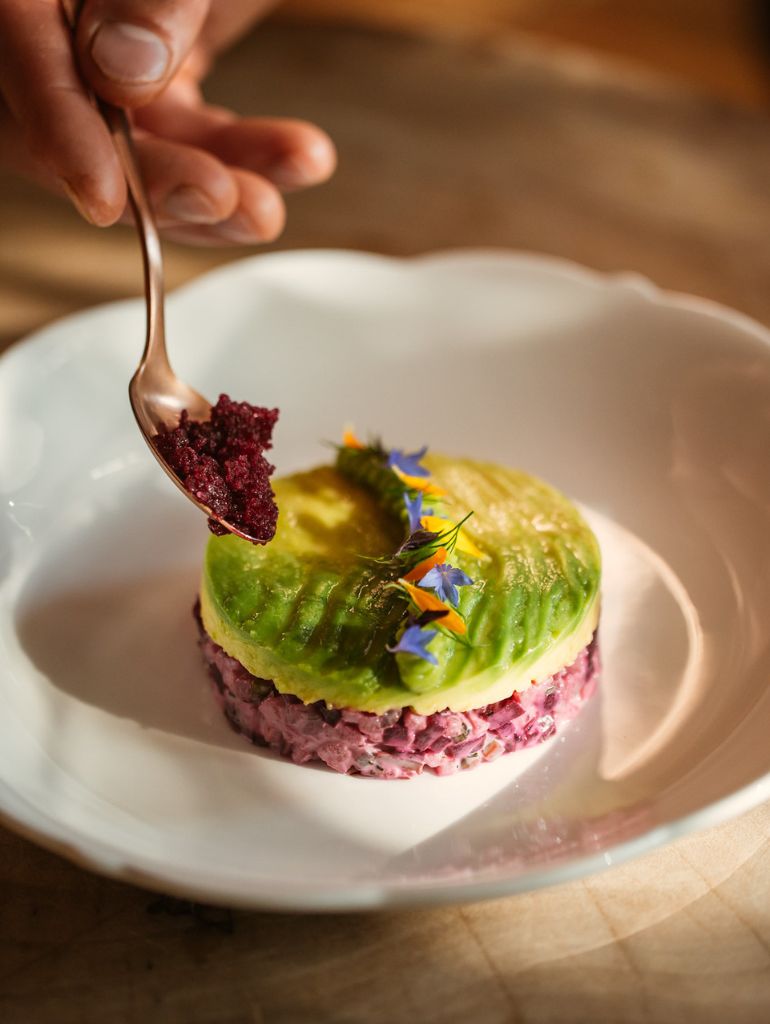
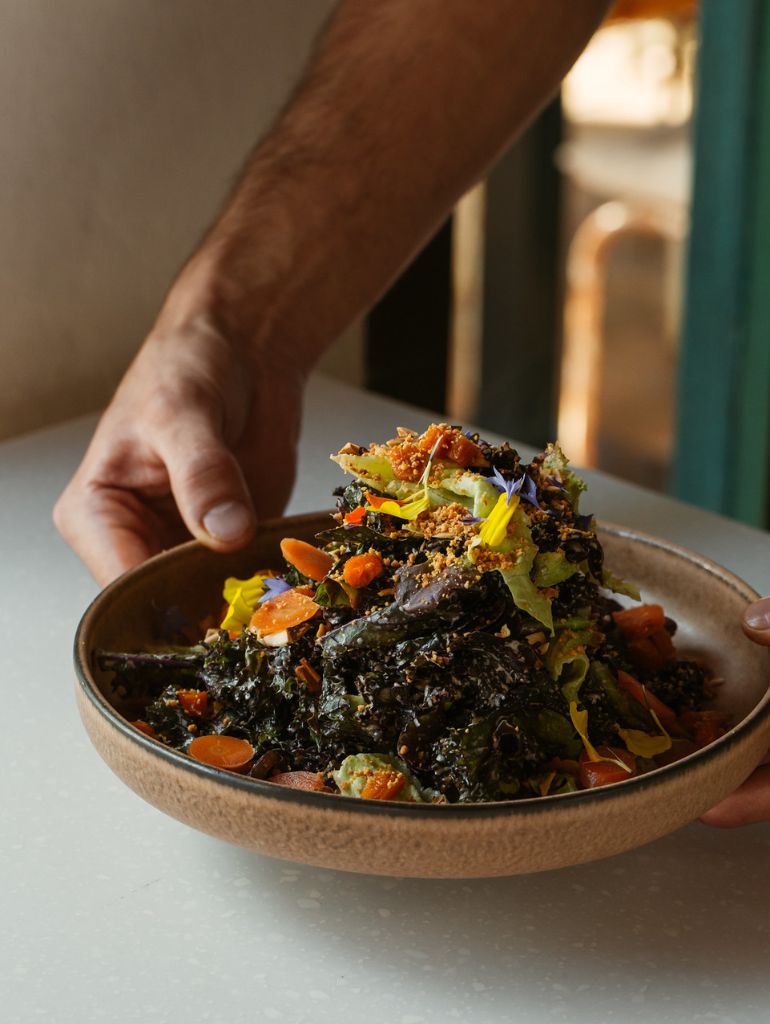

The ,More’ by Cas Gasi fine dining menu is reflective of the fact. Inspired by Mediterranean cuisine and brought to life by a team of enthusiastic young chefs, every plate is an ode to the beauty of nature. Organic meats, wild fish and only the finest quality produce sourced from local suppliers are included in the tapestry of flavours, but on the whole, it’s the produce from the Silent Garden that steals the show. Sharing starters include a delicious Garden Tartare expertly made with salt-baked beetroot, avocado and nasturtium granite, while the Green Leaves are served warm from the oven with Parmesan, pine kernels and raisins.
Fermenting of many varieties plays a large role in the kitchen at ,More’ by Cas Gasi, so Stracciatella is enlivened with fermented lemon skin, herbs, and sobrasada oil, while traditional croquetas are given a fresh, innovative spin alongside roasted leeks, orange and kimchi. Main courses range from delicious wild sea bass served with parsnip purée, hazelnuts and green peas, to sweet, tender lamb with pomegranate and green leaves, and buckwheat risotto prepared with sunflower seeds, kasha, millet and chives. For dessert, don’t miss the creamy goat milk cake with lacto-fermented orchard strawberry, lime and rosemary.
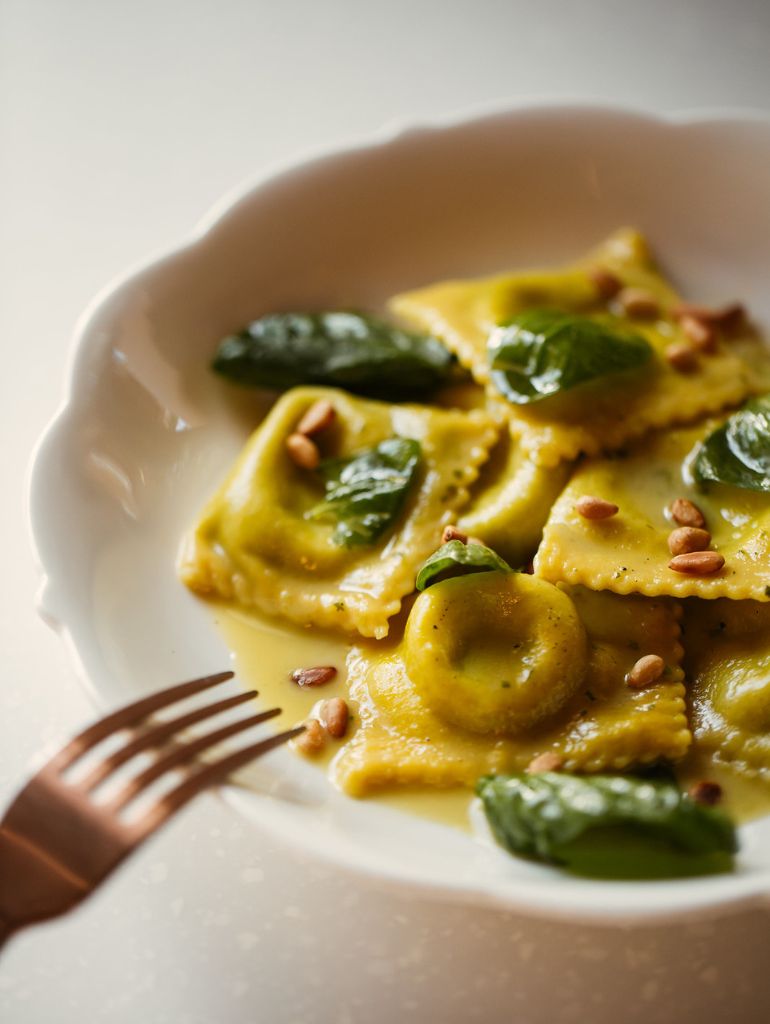
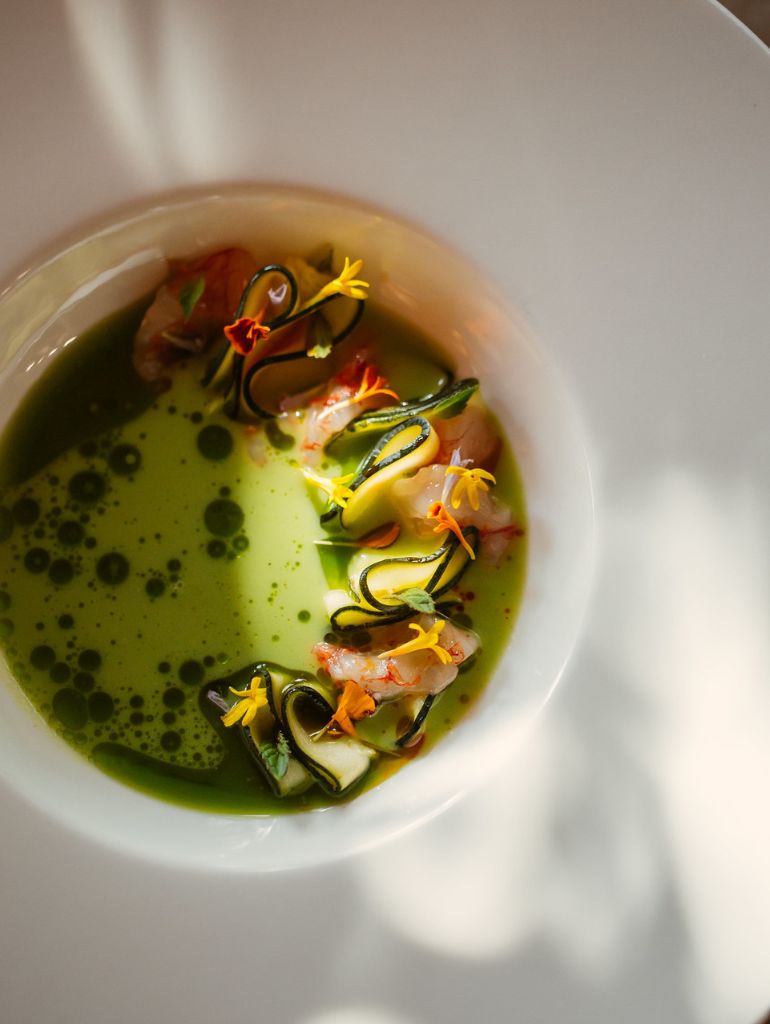
For conscious diners, every mouthful is enhanced by the knowledge that nothing goes to waste at ,More’ by Cas Gasi.Margaret oversees the Ibiza restaurant’s Compost Temple, in which every bit of organic waste is returned to the soil as fertiliser for new burgeoning plants. It’s a delicate ecosystem that’s lovingly nurtured in recognition of the union that exists between all living things, and it’s always been key to her outlook. “We’ve been here for 20 years and our approach to the environment hasn’t changed a bit,” she explains. “But now there is a master plan behind it.”
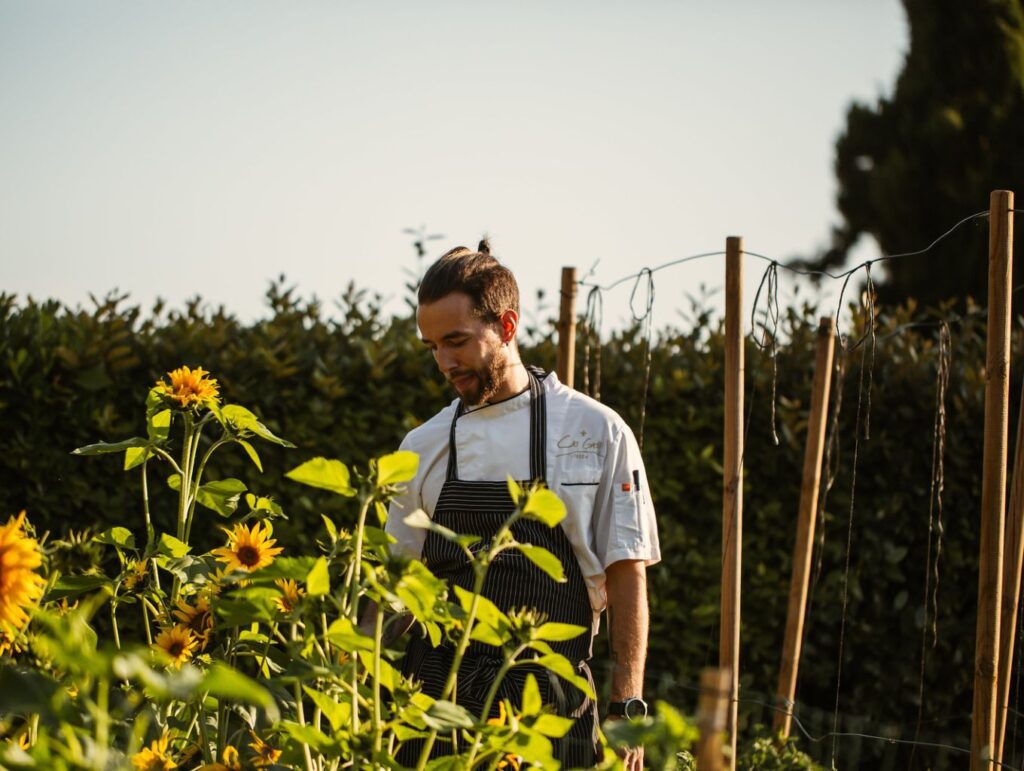
Such is Margaret’s dedication to the ,More’ by Cas Gasi project that she’s produced a beautiful book entitled Silent Orchard, explaining the intricate processes behind the concept. Available to guests, it offers insight into the mechanisms required to sustain living, growing things in a respectful, non-disruptive way. She aims to show gratitude to the island, perhaps for everything it’s gifted her in the many years it’s provided the backdrop to her life. “It’s not just about being organic,” Margaret concludes. “It has to also be regenerative so that you give back what you take from the soil.”

